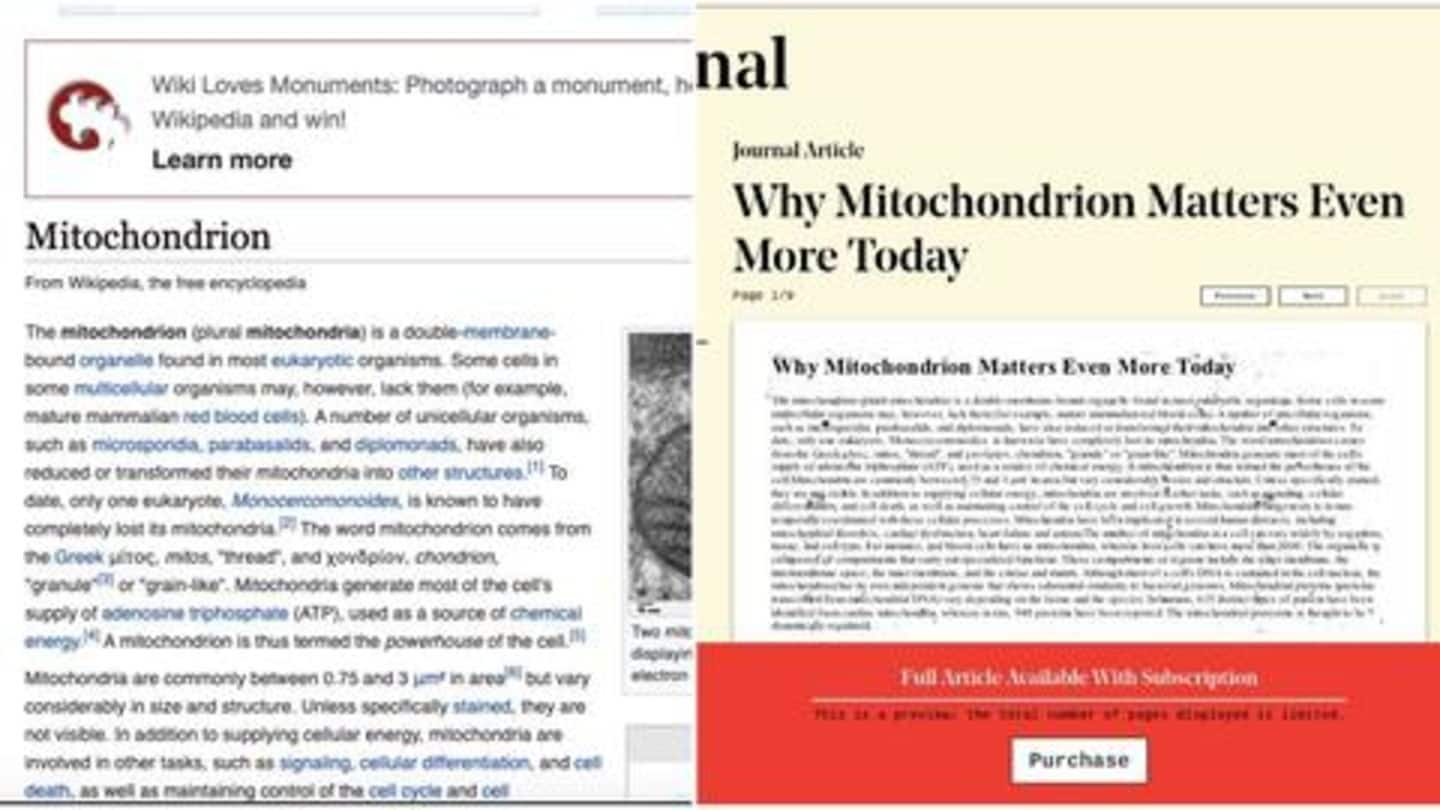
This website converts Wikipedia articles into 'academic papers'
What's the story
In academia, Wikipedia is often looked down upon. Something about it permitting edits by anyone that professors just can't stand.
However, students continue to source information from Wikipedia and seek workarounds for citations (instead of doing the actual legwork).
If you happen to be one of those, here's a website that allows you to convert your Wikipedia sources into academic paper citations.
Details
Here's how the website works
Created by digital product agency MSCHF, the website is called M-Journal.
All it does is ask you for a Wikipedia page and then makes it look like a scanned sheet of paper pulled right out of an obscure academic journal, complete with page breaks and black specks to make it look legitimate.
Once generated, you can share your fake M-journal paper with your professor.
Features
Your fake citation stays safe behind $300 paywall (also fake)
M-journal provides you with citations in three different styles: MLA, APA, and Chicago.
Furthermore, M-journal only gives viewers a preview of the paper, tricking readers into believing that the full text is behind a paywall.
Even if your professor happens to be thorough (as one should), the $300 subscription for one article should be enough to scare them off.
Quote
'Most papers should be able to refer to Wikipedia'
Interestingly, MSCHF founder Gabe Whaley told BuzzFeed News, "For all intents and purposes, most papers should be able to refer to Wikipedia."
"Wikipedia is a pretty good source," said Whaley, who thinks the academic system makes students jump through nonessential hoops.
He added, "It's one of those things that we created a product that tells a story and some commentary on how people live."
History
MSCHF known for other notorious products from the past
Now, MSCHF has created many such digital products including the font 'Times Newer Roman,' which elongates text by 10% to make your papers "look" bigger.
MSCHF is also the brains behind Netflix Hangouts, a Google Chrome plugin that disguises your Netflix viewing as a work conference.
MSCHF also designed a virtual avatar 'Tabagotchi' that slowly dies as you open more browser tabs.